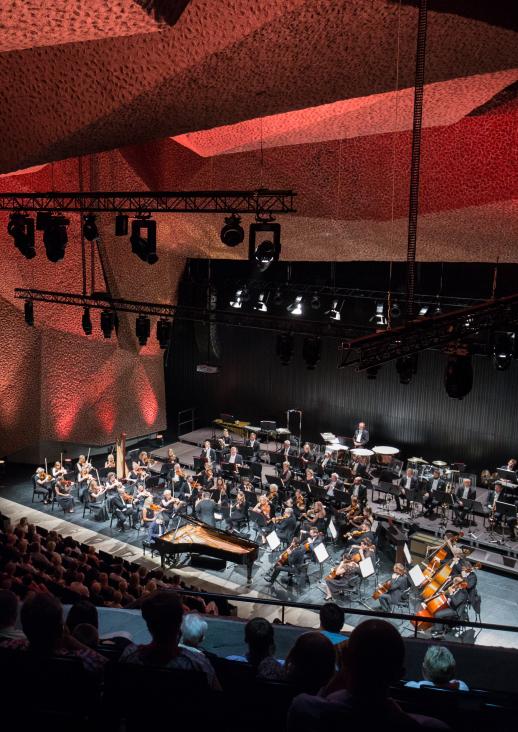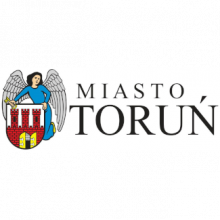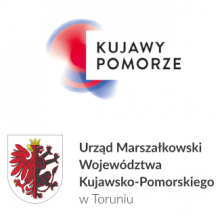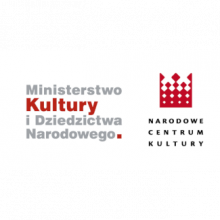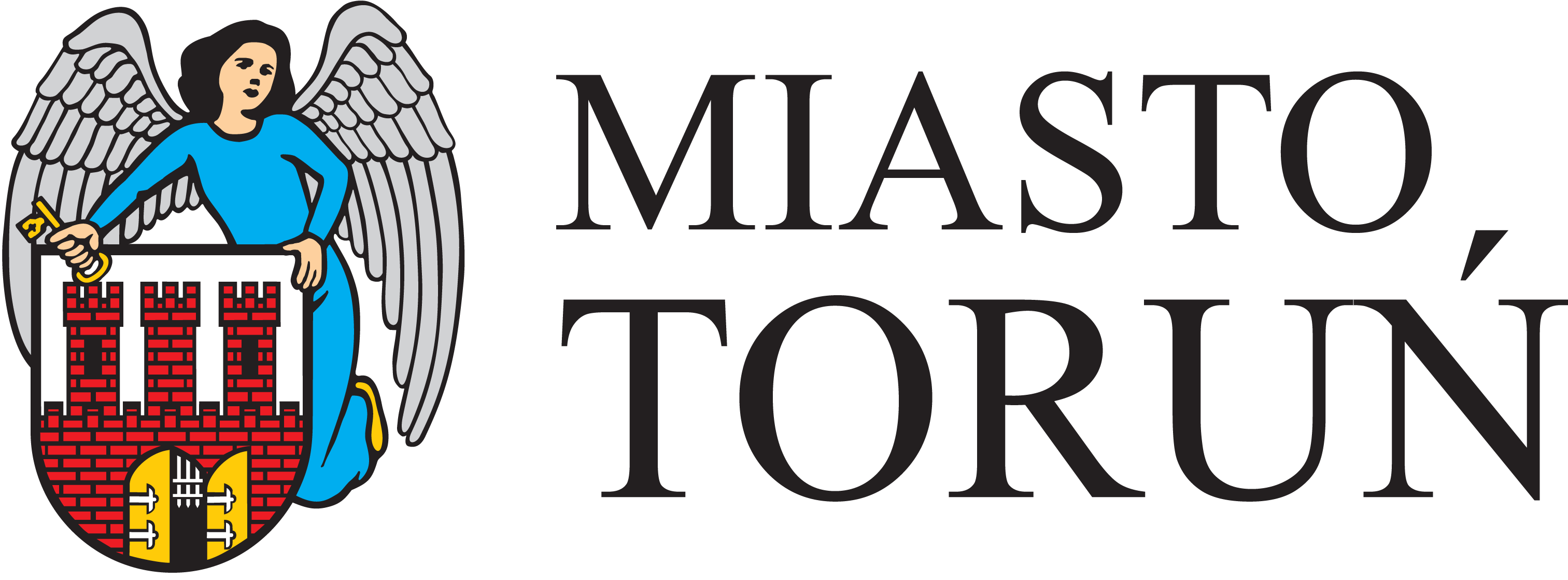Overtures and Macaroni
The concert takes place as part of the 24th International Festival "Nova Muzyka and Architecture" - Toruń / Kuyavian-Pomeranian 2020.
Artists:
- Toruń Symphony Orchestra
- Adam Banaszak – conductor
- Wojciech Pławner – conductor assistant
Programme:
- F. von Suppe - Light Calvary Overture
- G. Rossini - Semiramide Overture
- G. Rossini - La Cenerentola Overture
- G. Rossini - The Thieving Magpie Overture
- G. Rossini - The Barber of Seville Ouverture
- G. Verdi - La traviata, Prelude to Act III
- G. Verdi - Nabucco Overture
The concert co-organised and co-financed under the Institute of Music and Dance 'Conductor – resident' programme
Inspiration can sometimes be conceived under duress, as in the case of Gioacchino Rossini, who all too often created his works under time pressure, which can be confirmed by his words: “There is no better stimulus that prepares the ground for inspiration than working under duress, either from the presence of a copyist waiting for your work, or from the impresarios who keep rushing you while pulling their hair out. In my time, all the Italian impresarios had gone bald by the time they were in their thirties (...). I wrote the overture to The Thieving Magpie on the day it premiered, and this happened when I was already in the theatre, where the director imprisoned me under the watchful eye of four typists”. The concert success of the overture to The Thieving Magpie will only be repeated by the overture to Semiramide. Rossini loved duels with time. He signed a contract for The Barber of Seville with Teatro Argentina on 26 December 1815, committing himself to deliver the score... in mid-January the following year. No wonder that the overture was borrowed from an earlier Rossini opera: Elizabeth, Queen of England... Well, necessity is the mother of ‘invention’.
Giuseppe Verdi also liked to write in a hurry, which he confessed in the words: “To write well, you have to be able to write quickly, as if at one breath, leaving all the adaptations, embellishments, and cleaning of the whole for later. Otherwise, composing an opera intermittently puts it at risk of making it look like a mosaic, devoid of style and character”. Nabucco and Traviata are certainly not musical works that we could refer to as musical patchworks. Both operas are masterful, and their overtures are a tasty prelude to a feast created from the spirit of the theatre. The overture to The Light Cavalry operetta by the Austrian composer Franz von Suppé is definitely lighter in character.
Aneta Derkowska, PhD
Adam Banaszak is one of the most active conductors of the young generation. He specializes in opera, operetta, vocal-instrumental music and conducting ballet performances. He works for Wrocław Opera, but has also conducted performances at Kraków Opera, the Silesian Opera in Bytom and the Podlaska Opera and Orchestra in Białystok. He has conducted such performances as: Eugene Onegin by P. Tchaikovsky, Faust by Ch. Gounod, G. Puccini’s Madame Butterfly, Mascagni’s Cavalleria rusticana, R. Leoncavallo’s Pagliacci, Halka by Moniuszko, La Traviata by G. Verdi, Carmen by G. Bizet, Candide by L. Bernstein, Die Fledermaus by J. Strauss, The Gipsy Princess by I. Kalman. He conducted premiere performances of operas by Paweł Mykietyn (The Magic Mountain) and Zygmunt Krauze (Yemaya – Queen of the Seas). He has performed at festivals: Warsaw Autumn and Sacrum Profanum. He has conducted philharmonic repertoire concerts in: Bydgoszcz, Częstochowa, Jelenia Góra, Kalisz, Koszalin, Łódź, Opole, Płock, Poznań, Szczecin, Wałbrzych, Zamość. He has conducted the Sinfonia Iuventus Orchestra and recorded with the Polish Radio Orchestra and Beethoven Academy Orchestra. His performances and concerts have been broadcast by radio and television (TVP Kultura, TVP Polonia, Polish Television Channel 2, Polish Radio Channel 2, Rundfunk Berlin Brandenburg and many others). He holds a doctorate in conducting and is a lecturer at the Vocal Department of the Academy of Music in Wrocław. Since the season of 2020/2021 he has been the first guest conductor of Toruń Symphony Orchestra.
Wojciech Pławner is a violinist and conductor. He graduated from the Academy of Music in Łódź in the violin class of Professor Iwona Wojciechowska. He also studied at the Universität Mozarteum in Salzburg (Austria) and at the Universität für Musik und Darstellende Kunst in Vienna. In 2016 he graduated from the Department of symphonic & choral conducting of the Fryderyk Chopin University of Music in the class of Professor Marek Pijarowski and in 2018 he completed a choral conducting course in the class of Professor Bogdan Gola, becoming his assistant in the Department of Choral Conducting, Music Education, Church Music, Rhythmics and Dance in October 2018. He is a laureate of many domestic and international violin competitions. Major achievements include 6th place in the 13th Henryk Wieniawski International Violin Competition in Poznań, 1st place in the Stefanie Holl-Violinwettbewerb Competition in Vienna, Grand Prix and the Apollo’s Chariot award in Olsztyn and 2nd prize in the Louis Spohr International Competition in Weimar (Germany). He has been awarded multiple grants by the Minister of Culture and National Heritage and is a laureate of the Young Poland scholarship programme. As a violinist, Wojciech Pławner had the opportunity to perform in several countries in Europe, as well as in Japan. He refined his skills in conducting courses led by such masters as Jacek Kaspszyk, Robert J. Delekta, Jonathan Brett and Maciej Żółtowski. He received honourable mentions in the 1st A. Kopyciński National Conducting Students’ Competition in Wrocław and in the 6th Witold Lutosławski National Young Conductors’ Competition in Białystok. He has appeared with philharmonic orchestras in Łódź, Katowice, Kielce and Zielona Góra, and with the Chamber Orchestra of the Academy of Music in Łódź. Pławner works together with the “Sinfonietta” Youth Orchestra of the Łódź Region. He was recently appointed as conductor-in-residence of the Toruń Symphony Orchestra for the 2019/2020 season under the Conductor-in-residence programme organised by the Institute of Music and Dance. In 2017 he became a teacher and conductor of the Symphony Orchestra of the Karol Szymanowski State Music School Complex No. 4 in Warsaw.
There is no intermission.
The event will take place in accordance with current recommendations and guidelines.
Please read the rules and comply with the GUIDELINES FOR THE CONCERT PARTICIPANTS.
IN CONNECTION WITH THE ONGOING COVID-19 PANDEMIA and completing the statement to be given to
you by staff on the day of the concert.

